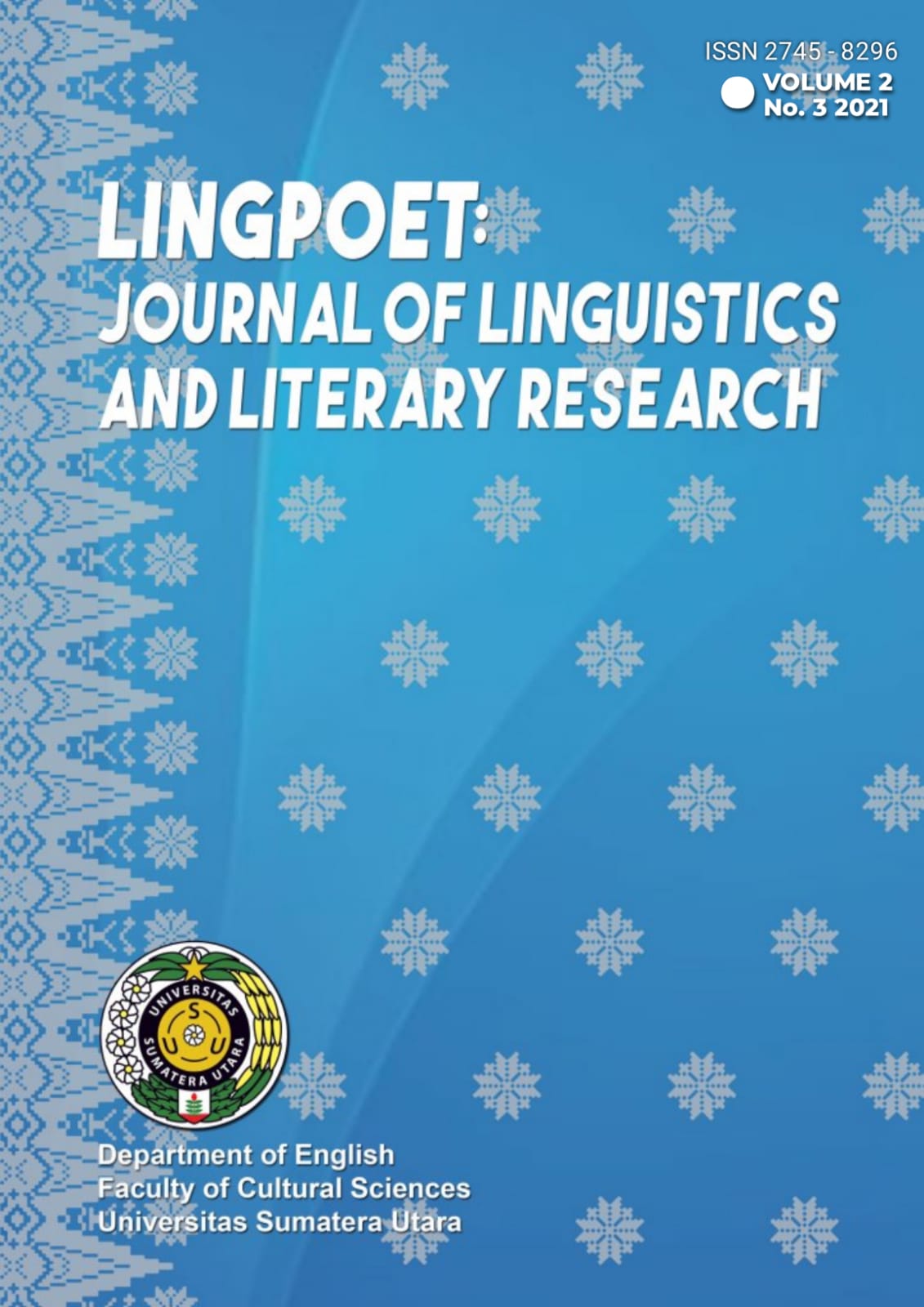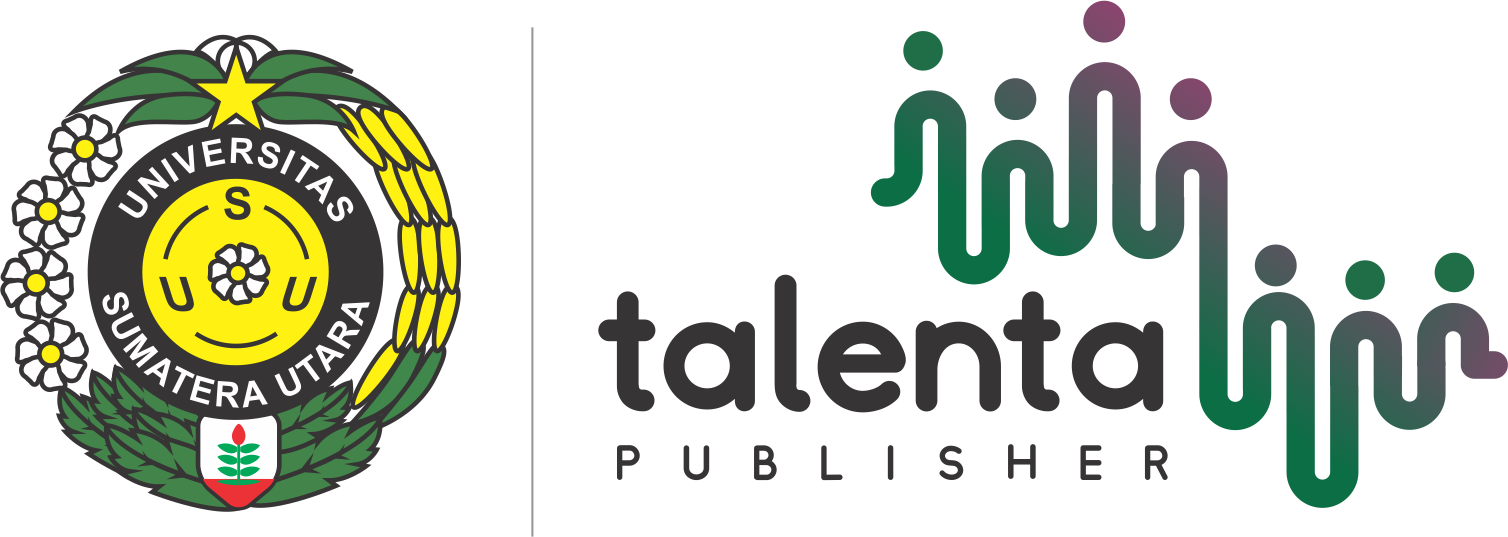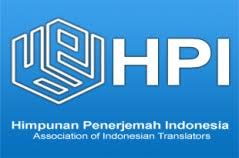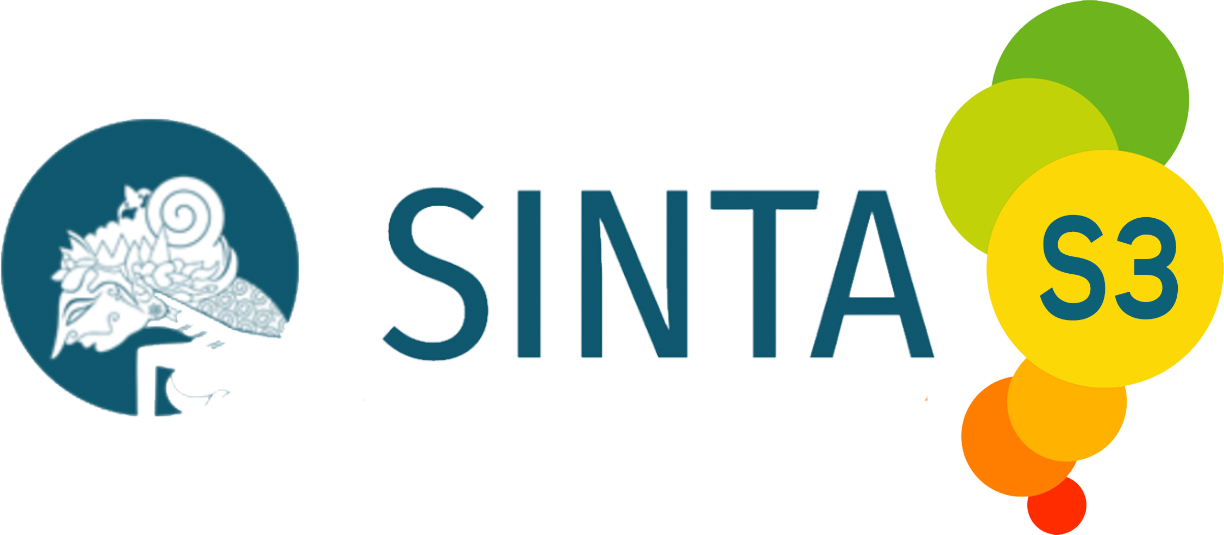Language and Difference: A Deconstructive Reading Of Niyi Osundare’s “Poetry Is†and Abubakar Othman’s “Wordsworth Liedâ€
DOI:
https://doi.org/10.32734/lingpoet.v2i3.6898Keywords:
Language, Difference, Poetry, DeconstructionAbstract
The paper examines, using Deconstruction as an analytical framework, the desire by Niyi Osundare and Abubakar Othman to resolve the problematics in and around the composition and reading of poetry in particular and literature in general. The analysis of Osundare’s “Poetry Is†and Othman’s “Wordsworth Lied†demonstrates the ways in which language is not a transparent medium for the representation of truth, knowledge, beliefs since the reading of poetry must scrupulously and tenaciously tease out the point at which the texts differ from themselves. Indeed, language may be a medium through which humans express thoughts, feelings, ideas or forge an identity, but it cannot be reduced to a subjective apprehension. Arguably, the play of difference within language is what makes identity possible and at the same time, thwarts it infinitely. Therefore, the paper concludes with the argument that the two speakers in the selected poems are caught up in self-contradiction or auto-deconstruction, in that there are tensions between what they meant and what the texts say.
Downloads
References
Anyokwu, C. (2015). “The Essentials of Niyi Osundare’s Poetry.†Transitional Literature, 8(1), 1-11. http://fhrc.flinders.edu.au/transitional/home.html
Bennett, A. and Royle N. (2004). An Introduction to Literature, Criticism and Theory (3rd Ed). Pearson Educational Limited.
Culler, J. (2000). “The Literary in Theoryâ€. In J. Butler, J. Guillory, and K. Thomas (Eds.), What’s Left of Theory: New Work on the Politics of Literary Theory. Routledge, pp. 273-292.
Davis, R.C. and Schleifer, R. (1991). Criticism and Culture: The Role of Critique in Modern Literary Theory. Longman.
Derrida, J. (2019). Theory and Practice (Wills, D. Trans.). The University of Chicago Press.
Derrida, J. (1997). Deconstruction in A Nutshell: A Conversation with Jacques Derrida. In Caputo, J. (Ed.). Fordham University Press.
Derrida, J. (1988). Limited Inc (S. Weber, Trans.) Northwestern University Press.
Derrida, J. (1986). Mémoires: For Paul de Man (C. Lindsay et al. Trans). Columbia University Press.
Derrida, J. (1982). “Difference.†In Alan Bass (Trans.), Margin of Philosophy. Chicago University Press, pp. 1-27.
Derrida, J. (1976). Of Grammatology (Spivak G.C., Trans). The Johns Hopkins University Press.
De Man, P. (1971). Blindness and Insight: Essay in the Rhetoric of Contemporary Criticism (2nd Ed.). Oxford University Press.
De Man, P. (2000). “The Resistance to Theoryâ€. In Lodge and Wood (Eds.), Modern Criticism and Theory: A Reader. Longman, pp. 331-347.
Eagleton, T. (2013). How to Read Literature. Yale University Press.
Eagleton, T. (2008). The Meaning of Life: A Very Short Introduction. Oxford University Press.
Eagleton, T. (1996). Literary Theory: An Introduction (2nd Ed.). The University of Minnesota.
Egya, S. (2014). Nation, Power and Dissidence in Third-Generation Nigerian Poetry in English. Unisa Press.
Ekpenyong, B. (2014). “The Poetry of Niyi Osundare.†In Eko, E. et. al. (Eds.), Masterpieces in African Literature: In Rhythm with Nigeria’s Centenary 1914-2014. Sunbird Africa Media Production, pp. 577-580.
Elliot, T.S. (1972). “Tradition and the Individual Talent.†In David Lodge (Ed.) 20th Century Literary Criticism: A Reader. Longman, pp. 71-77.
Fowler, R. (1981). Literature as Discourse: The Practice of Linguistic Criticism. Routledge.
Garuba, H. (2003). “Osundare, Niyi.†In Gikandi, S. (Ed.), Encyclopedia of African Literature.. Routledge, pp. 590-91.
Laird, A. (1999). Power of Expression, Expressions of Power. Oxford University Press.
Macherey, P. (2006). The Theory of Literary Production (George W., Trans.), Routledge and Kegan Paul.
Nietzsche, F. (1968). The Will to Power (WP). In Kaufmann and Hollingdale (Eds.), Vintage Press.
Nietzsche, F. (2006). Thus Spoke Zarathustra (Caro A.D., Trans.). Cambridge UP.
Osundare, N. (1983). “Poetry Isâ€. In Songs of the Marketplace. Horn Press.
Othman, A. (2002). “Wordsworth Lied.†In The Palm of Time. Malthouse Press Ltd, p. 56.
Royle, N. (2003). Jacques Derrida. Routledge.
Soyinka, W. (2018). Intervention VIII: Quis Custodiet Ipsos Custodes?: Gani’s Unfinished Business. Bookcraft.
Spivak. G. (1976). “Translator’s Preface.†In Of Grammatology. John Hopkins University Press, pp. ix-lxxxvii.
White, H. (1978). Tropics of Discourse: Essays in Cultural Criticism. The Johns Hopkins UP.
Wimsatt, W.K. and Beardsley, M.C. (1972). “The Intentional Fallacy.†In David Lodge (Ed.) 20th Century Literary Criticism: A Reader. Longman, pp. 334-35.
Wordsworth, W. (1959). “Preface to Lyrical Balladsâ€. In E. Selincourt (Ed.), Poetical Works (Vol. II).. Clarendon Press, pp. 385-88.
Downloads
Published
How to Cite
Issue
Section
License
Copyright (c) 2021 LingPoet: Journal of Linguistics and Literary Research

This work is licensed under a Creative Commons Attribution-ShareAlike 4.0 International License.













